Architectural forms are influenced by the climate of the region. Architecture’s subjugation to nature provides diversity and identity and also improves the human experience by keeping a man in close relationship with the elements. The South Breeze Square office building, set in Gulshan Avenue, exhibits a perfect example of how climate plays a very important role in architectural and building forms. The core philosophy of the prominent Architect Nahas Ahmed Khalil along with his team; Ar. Farzad Ehsan and Ar. Rehman Taki Ferdous, was to harmonise the building form and fabric with the site and climate; thereby reducing ecological impacts and achieving energy efficiency whilst providing human health and comfort, and creating opportunities for social interaction and a productive working environment.
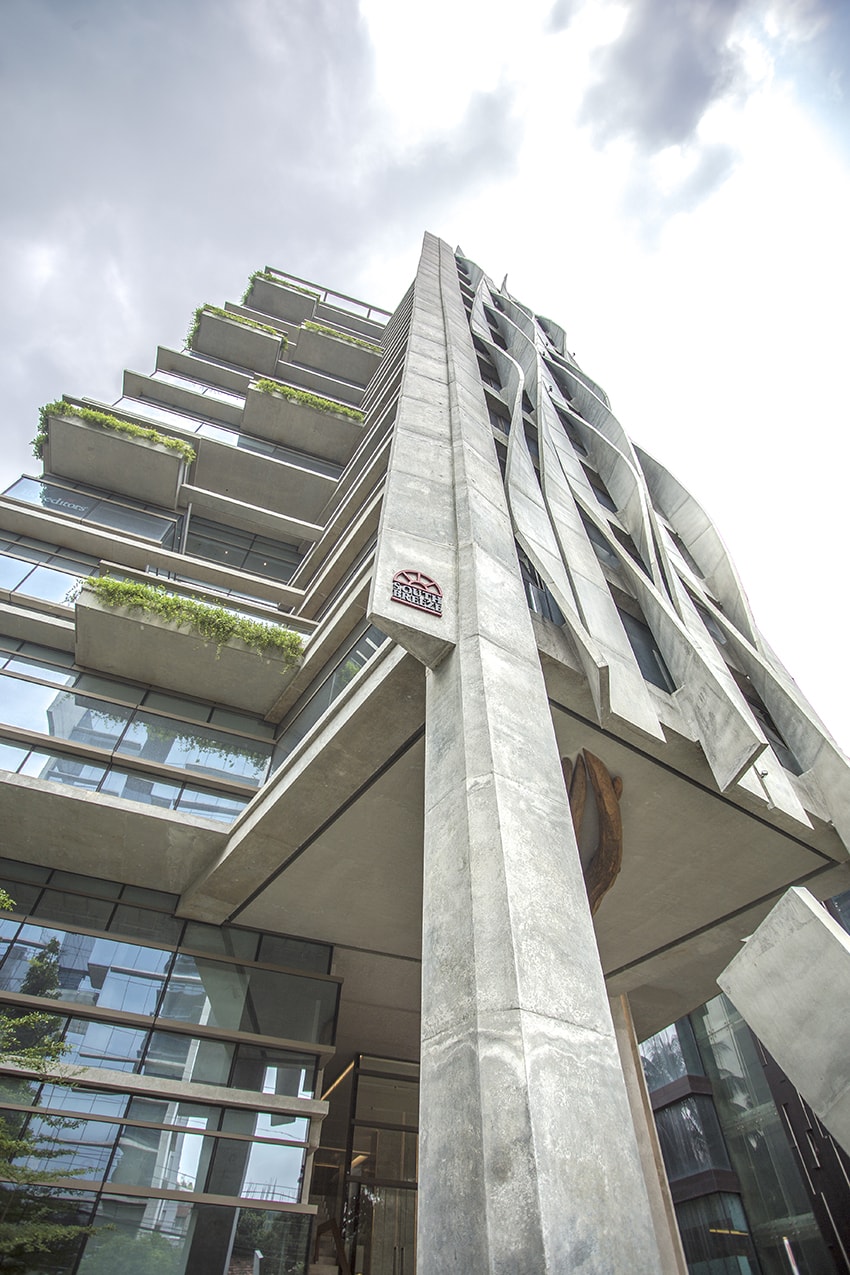
From Ar. Nahas Khalil design scheme; the form of the building was approached from two primary concerns. The building faces west. The first concern, therefore, deals with the difficult problem of overcoming the heat gained through glazing, without the use of special glazing or expensive shading elements. The building has three neighbours with only the west-view free. The option of blocking the only view overlooking the Gulshan Avenue, with solid surfaces was not desired.
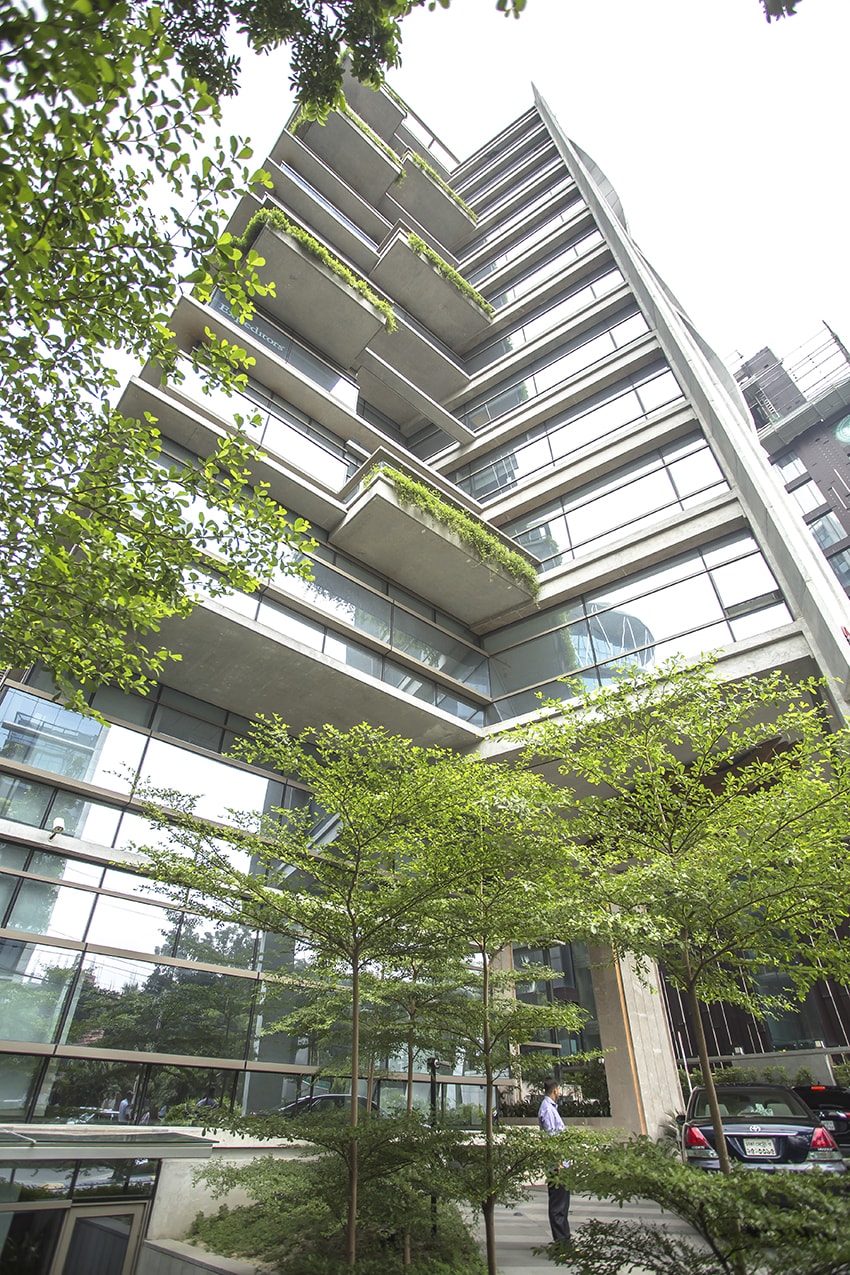
“It took the design team multiple trials of basic layouts in the schematic design phase to bring out the desired solution. Fortunately, the site sits on a slight curve of the Gulshan Avenue. This presented us with the scope of opening up the north-west from inside. By staggering the west face of the building it became possible to create a more-or-less solid west surface on the extending block. By tilting the extending block a bit, a long view to the North-east, onto the Gulshan Avenue could also be achieved”, explains Ar. Nahas Khalil while describing the project.
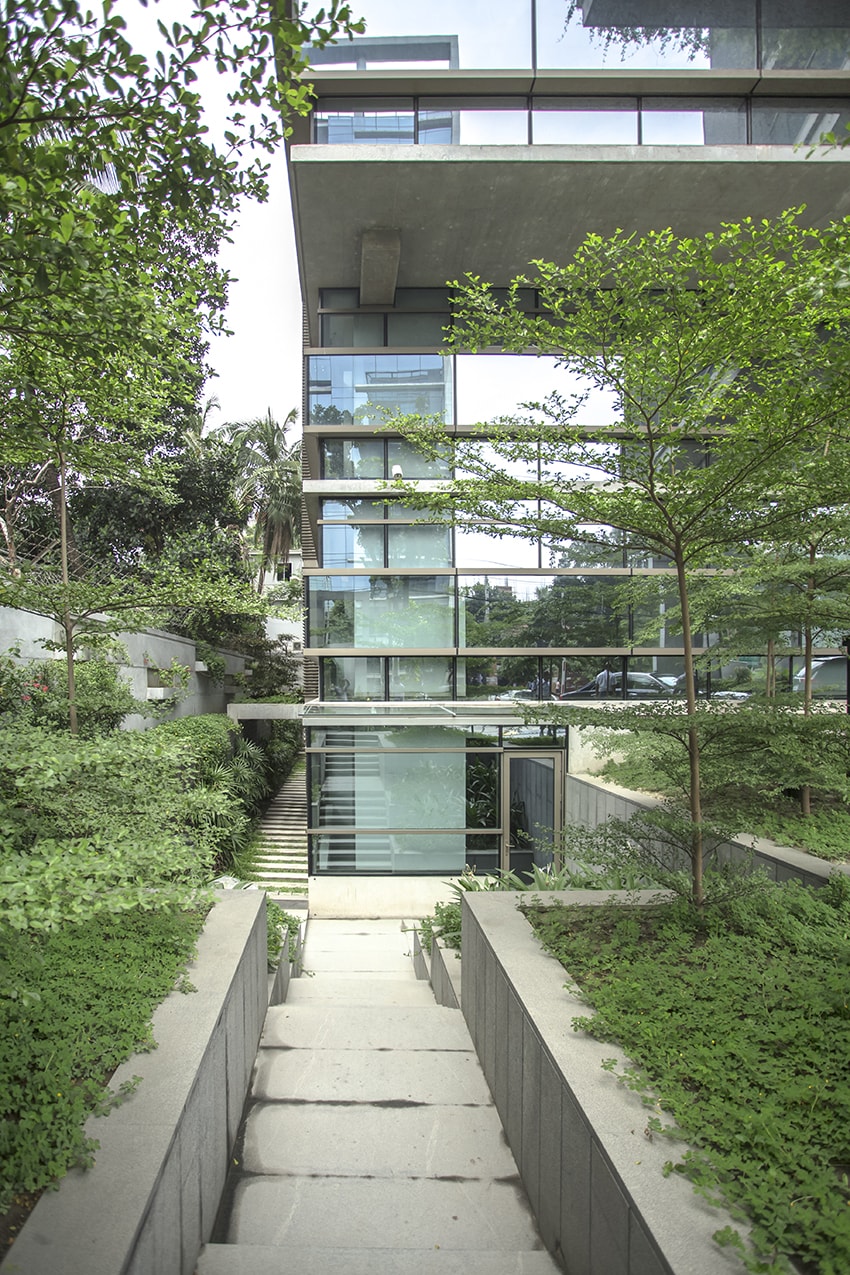
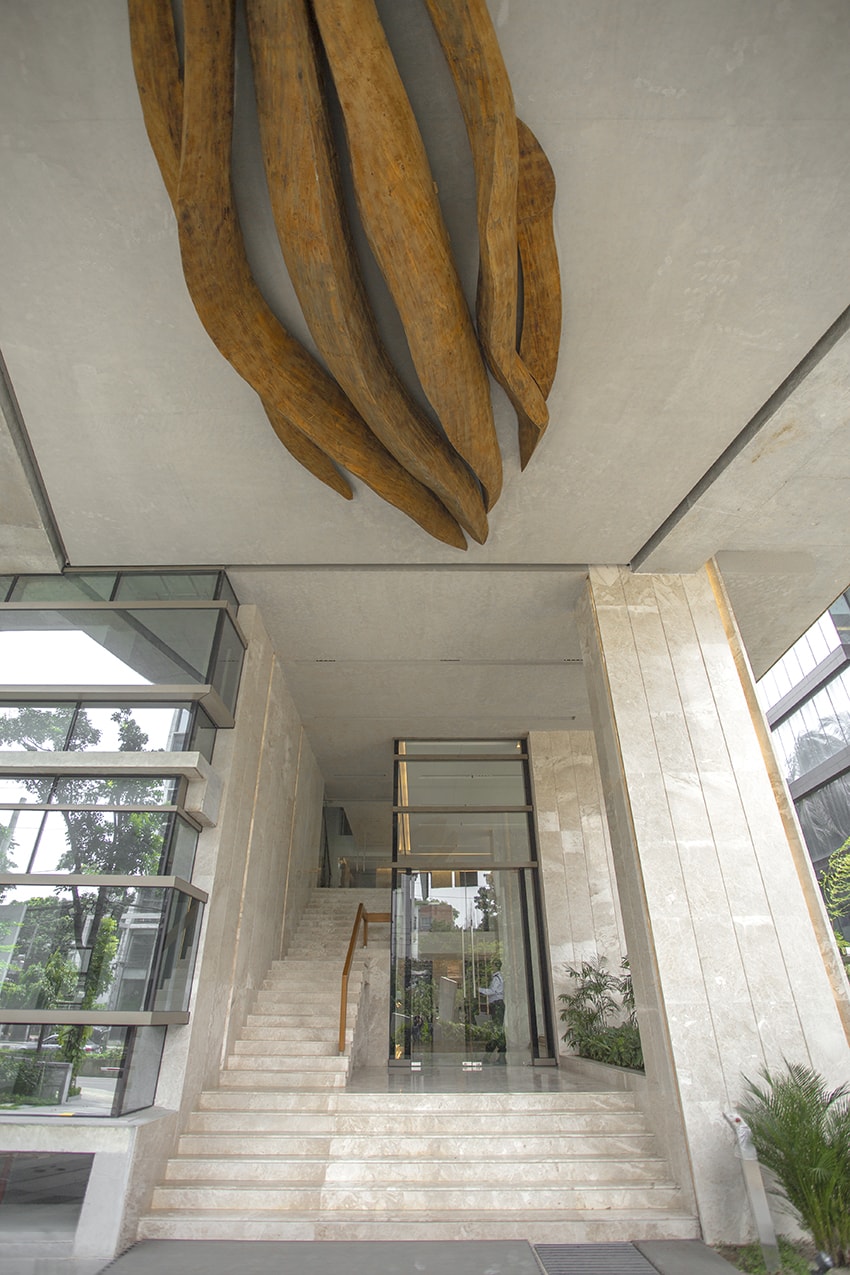
To not miss the west opening onto the wide avenue, unique design façade is implemented; where the west solid wall is replaced with concrete strips. The strips twist to create openings and twist back return to the closed position in a random harmonious manner.
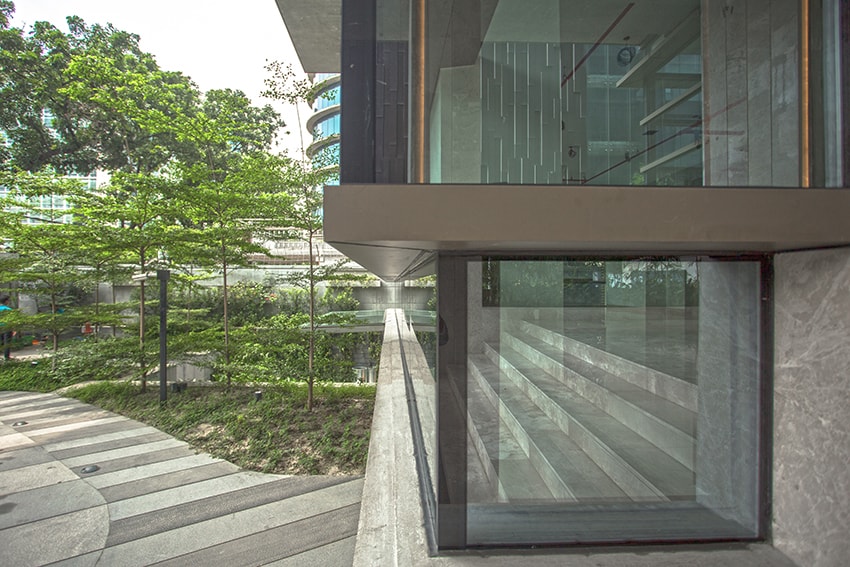
The concept of a “Brise-Soliel” is thus transformed exploiting the plasticity of concrete to create enough openings inside this extended block to expose the Avenue without letting in the sunlight at any time of the day in any season. The setback, northern main block of the building, is shaded from the low western sun by the extended block with the full glazing left intact, for the daylight to fill in the inside.
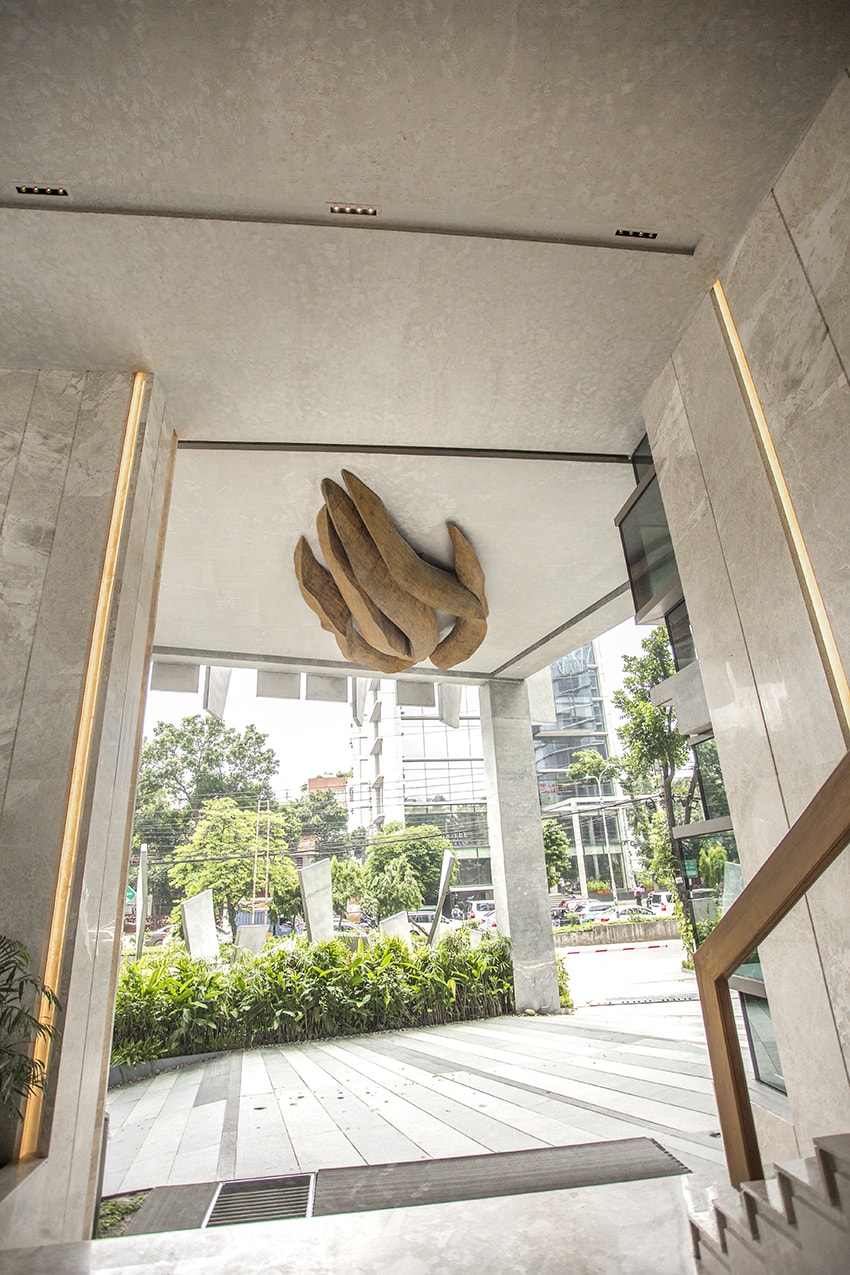
A variety of flexible workspaces befitting different work styles and tasks has been a major concern of the office design. Cantilevered planter-balconies provide additional shading to the west façade and help create a desired to escape from the daily stress of work.
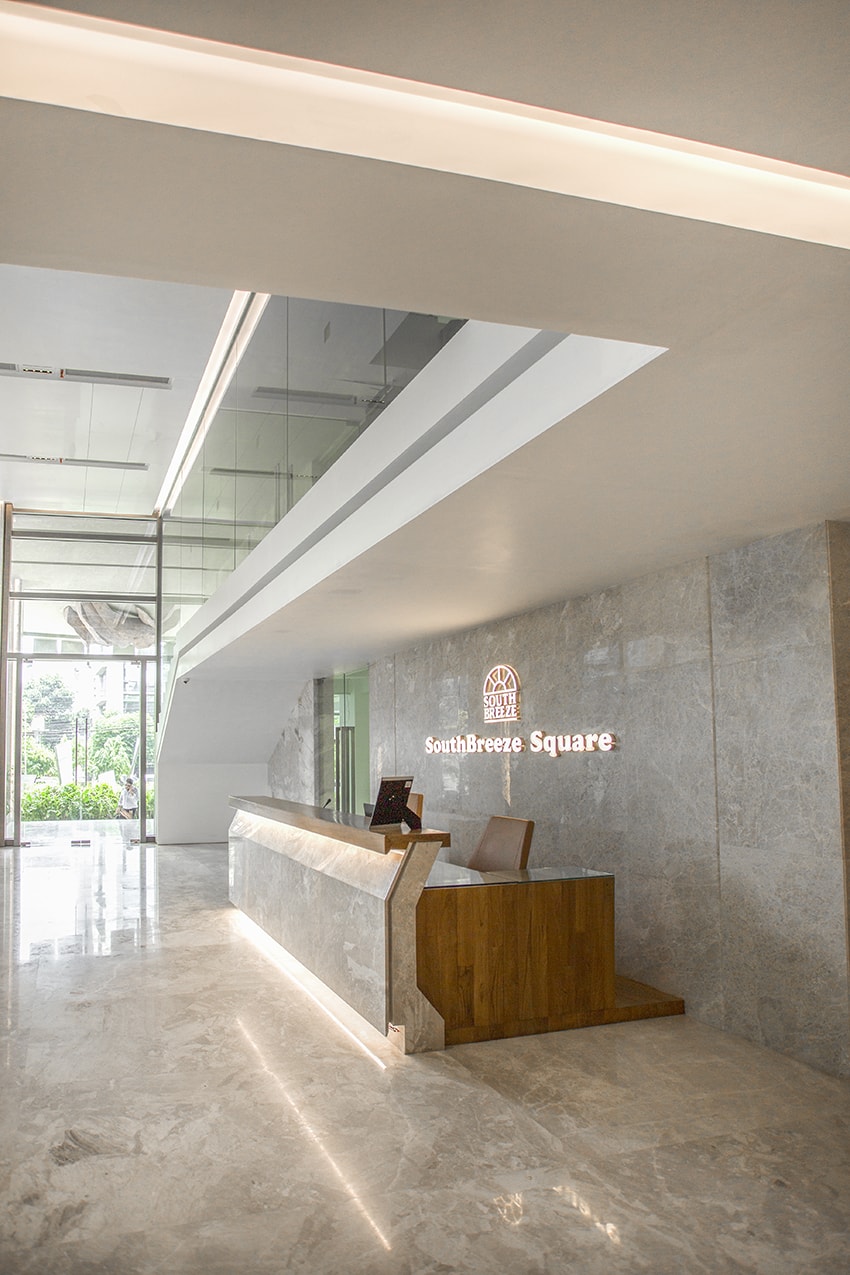
Collaborating with South Breeze Housing Limited, the second concern of the design team was getting a proper daylight distribution inside. In Bangladesh, there is an abundance of daylight, with the opportunity of an intrinsic connection with the outdoors. But, a common fallout of greater daylight though, is more glare on computer screens. Therefore, a large focus of the project dealt with maximizing daylight, yet minimizing glare.
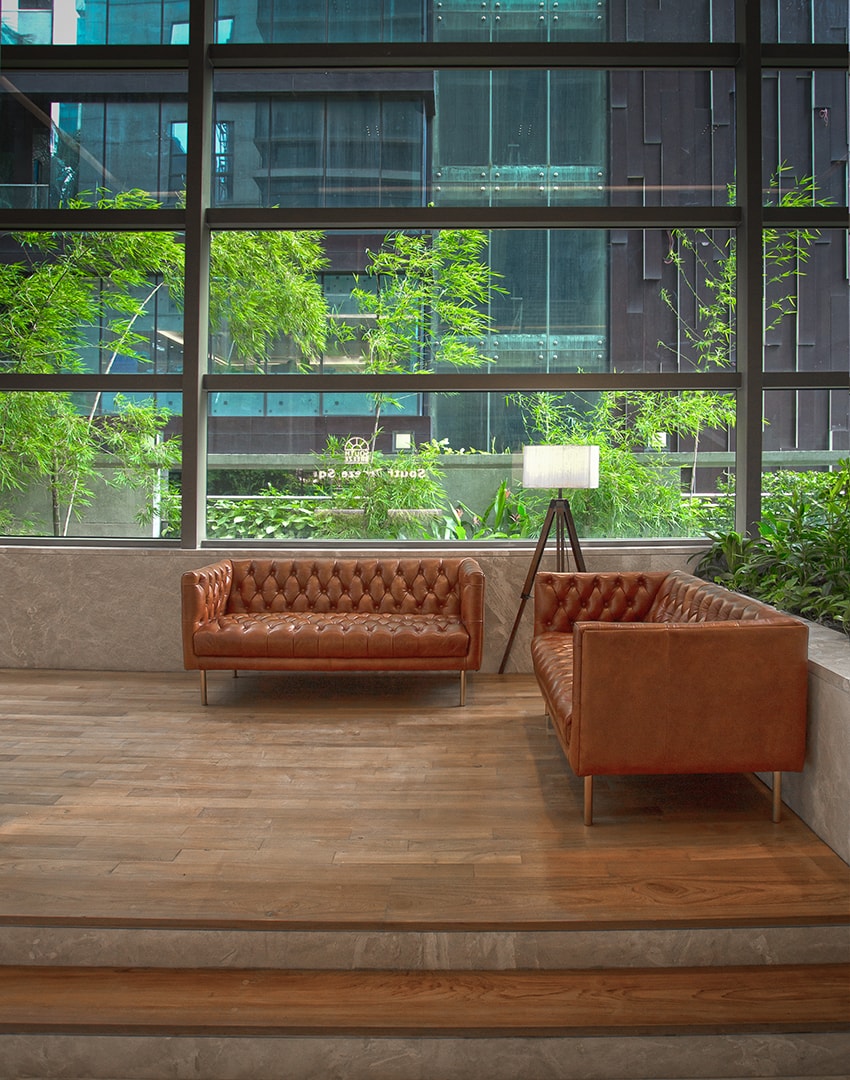
The designer team devised a glazing system; where the lower mid-section of the glazing system, closer to the computer, are allowed to be screened off by individual users, while the upper and lower segments of the glazing system are free to allow unrestricted daylight. In order to enhance the daylight, the lower-midsection, between the heights of a standard desk to about the height of a person, is pushed out. An inner extension acts as a light-tray to bounce sunlight off the top surface deeper into the office spaces.
Strategic design decisions were taken to utilize spaces. Some additional spaces that could not be used above ground, due to the height restrictions, had been placed in a partial semi-basement set into a depressed landscaped area, creating a private open-to-sky garden. The floor above on the ground floor, also having direct access from the outside; may connect internally to form a duplex office space. The first floor, similarly, having direct access from the outside using a stair from the ground floor, can also double up to form a duplex with the second floor. This results in four floors of attractive, independent feeling office spaces while reducing traffic loads for the rest of the twelve office floors.
The toilet stacks have been extracted from the traditional service core, and strategically placed inside the office space, thereby, reducing circulation. The linear small lobby; opened up to a small garden on the south-east; created a lunchtime outdoor reprieve from the office chores.
A portion of the west of the site has been given over for the enjoyment of the pedestrians using the Avenue. A green island with the flowing sounds of water stops the building intruding in on this no-mans-land to be enjoyed by both the city and the building in almost equal degrees.
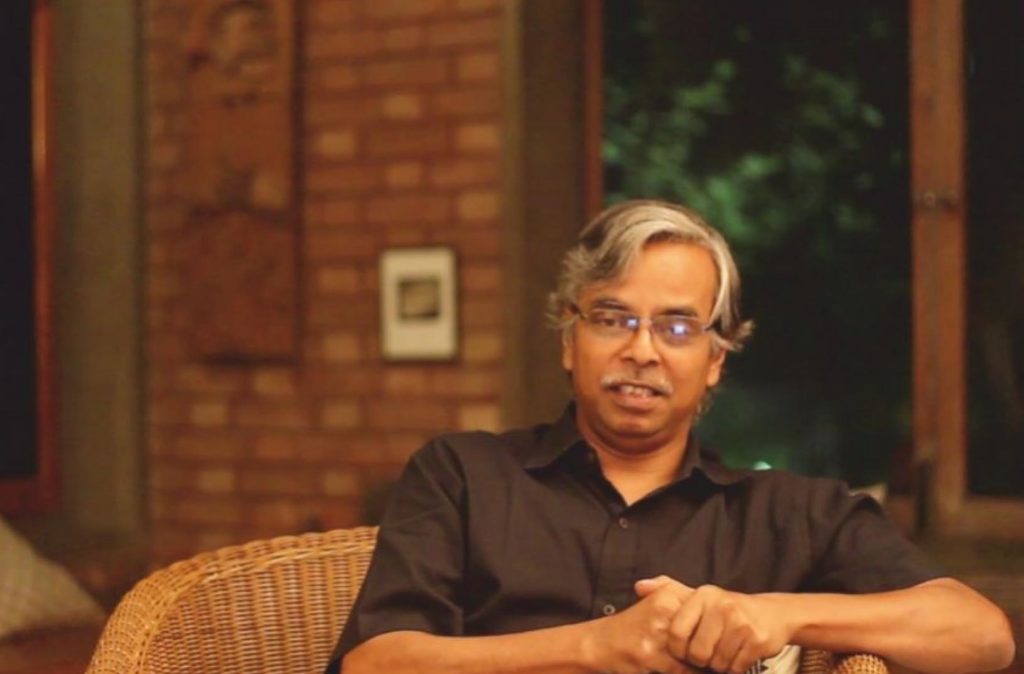
Architect Profile
Nahas Ahmed Khalil, a distinguished name in the realm of architecture. He was enrolled in Bangladesh University of Engineering and Technology, known as BUET, where he received his bachelor of architecture degree in 1982. His inspiration towards studying architecture was one of the most revered architects, Ar. Muzharul Islam. Some of the other names in the architectural sphere who inspired Ar. Khalil are Geoffrey Bawa, Tadao Ando, Peter Zumthor and Frank Lloyd Wright.
Ar. Nahas Ahmed Khalil manages his own venture called ARC Architectural Consultants and created wide range of successful projects. To name a few are Osban House, Matir Bari, Akash Pradeep, Rashid Eye Hospital and Bengal Bangshibari. Regarded as the one of the master architect, Ar. Nahas Khalil expresses his enthusiasm and passion towards nurturing his designs to continue, till last breath.

